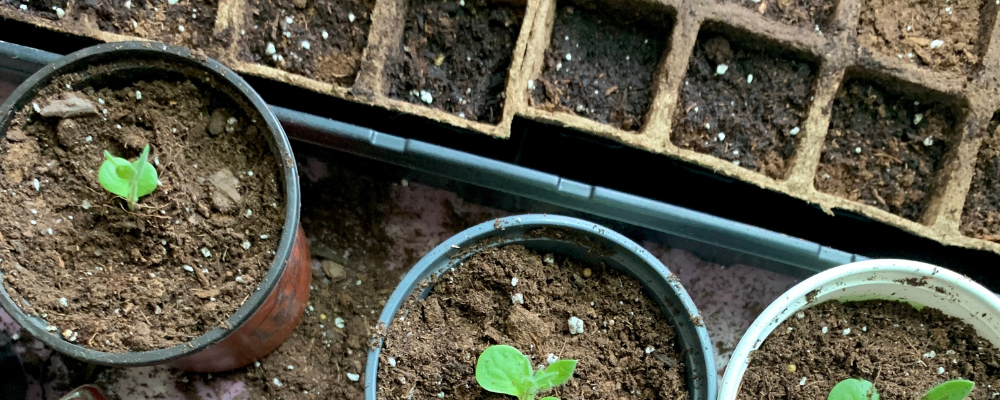Introduction
Knowing when to buy seeds for your garden is crucial for a successful planting season. Buying seeds at the right time ensures better germination rates, healthy plants, and a bountiful harvest. Whether you’re a seasoned gardener or a beginner, understanding seed buying timing can help you avoid common pitfalls such as seeds losing viability or missing optimal planting windows.
This article explores the best times to purchase garden seeds, factors influencing your decision, and expert tips to optimize your seed-buying strategy. We’ll cover seasonal considerations, storage advice, and how to align your seed purchase with your local climate and gardening goals.
Why Timing Matters When Buying Seeds
Buying seeds too early or too late can impact their viability and your garden’s success. Seeds have a shelf life, typically ranging from one to five years depending on the type, and improper storage can reduce germination rates. Purchasing seeds too close to planting season might mean limited selection or higher prices.
Key reasons to time your seed purchase correctly:
- Maximize seed viability: Fresher seeds germinate better.
- Ensure availability: Popular varieties can sell out fast.
- Plan ahead for planting: Having seeds on hand allows proper seed starting and hardening off.
Best Time to Buy Seeds: Seasonal and Practical Guidelines
Late Winter to Early Spring
For most gardeners, late winter through early spring is the prime time to buy seeds. This period aligns well with seed catalogs arriving and nurseries stocking up. Purchasing seeds during this time allows you to start seedlings indoors before the last frost date.
- Benefits: Wide selection, fresh seeds, time to start indoors.
- Consider: Starting cool-season crops like lettuce, broccoli, and peas indoors early.
Fall and Early Winter
Fall and early winter can be excellent times to buy seeds if you plan ahead for the next growing season. Many seed companies offer discounts or bundles during this period. Buying seeds now lets you research and prepare your garden plans without rush.
- Benefits: Discounts, ample planning time.
- Consider: Store seeds properly in a cool, dry place to preserve viability.
Avoid Buying Seeds Too Late in the Season
Purchasing seeds during peak growing season or late spring can limit your options and reduce seed quality. Seeds may be older stock or overpriced due to demand.
- Risks: Limited variety, lower germination rates.
Factors Influencing When to Buy Seeds
Local Climate and Frost Dates
Your regional climate and average frost dates dictate your garden timeline. Knowing your last spring frost and first fall frost dates helps determine when to start seeds indoors or sow directly.
- Purchase seeds 2-3 months before your last frost date for indoor seed starting.
- For direct sowing, buy seeds a few weeks before planting outdoors.
Seed Type and Germination Requirements
Different seeds have varied germination periods and temperature needs.
- Warm-season crops (e.g., tomatoes, peppers) require indoor starts 6-8 weeks before planting.
- Cool-season crops (e.g., spinach, radishes) can often be sown directly or started earlier.
Understanding these timelines influences when you should acquire seeds.
Seed Storage and Shelf Life
Seeds generally remain viable for 1-5 years, depending on type:
| Seed Type | Average Viability |
|——————–|——————-|
| Lettuce, Parsley | 1-2 years |
| Beans, Corn | 3-4 years |
| Tomato, Cucumber | 4-5 years |
Buying seeds too early without proper storage can reduce germination rates. Store seeds in airtight containers in cool, dark places.
Expert Tips for Buying Garden Seeds
- Buy from reputable seed suppliers to ensure quality and true-to-type seeds.
- Check seed packet dates to avoid purchasing expired or old seeds.
- Plan your garden layout first to buy only the seeds you need and reduce waste.
- Order early for popular or heirloom varieties to guarantee availability.
- Consider starting a seed-saving practice to reduce future buying needs and preserve favored strains.
Conclusion
Knowing when to buy seeds for your garden can make a significant difference in your gardening success. Aim to purchase seeds late winter to early spring for fresh stock and ample preparation time. Consider your local climate, seed type, and storage capabilities to optimize germination and growth.
By planning ahead, buying from trusted sources, and aligning seed purchases with your planting schedule, you set yourself up for a thriving and rewarding garden season. Start your seed-buying journey today and watch your garden flourish!
